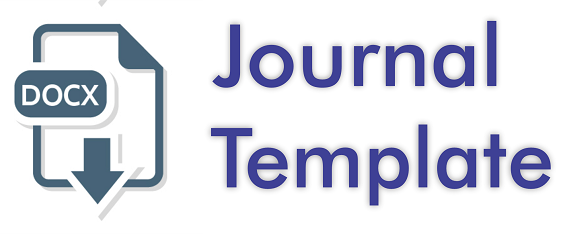Pengaruh Artifical Intelligience terhadap Efisiensi Audit Keuangan Syariah
DOI:
https://doi.org/10.59107/ri.v4i1.95Keywords:
Artificial Intelligence, Financial Audit, Eficiency, ShariaAbstract
This study aims to explore how the application of Artificial Intelligence (AI) affects the level of efficiency in the audit process in the Islamic-based financial system. Amid the rapid development of digital technology, the use of AI in accounting and auditing practices is becoming increasingly common, including in the Islamic financial sector. This research uses a qualitative approach with a literature study method, namely by reviewing various relevant literature sources, scientific articles, and previous research results. The results of the analysis show that the utilization of AI can speed up the audit process, improve the accuracy of results, and assist in the identification of risks earlier. However, its application still requires control from human auditors to remain in line with sharia principles. This research is expected to be a reference for auditors and Islamic financial institutions in integrating technology wisely while maintaining sharia values.
Downloads
References
Achta Pratama, F. (2022). Analisis Peran Pendidikan Vokasi Dalam Pengembangan Industri Halal di Indonesia. Risalah Iqtisadiyah: Journal of Sharia Economics, 1(1), 1–7. https://doi.org/10.59107/ri.v1i1.22
Adawiyah, D. A. (2022). Perilaku Auditor Menyikapi Munculnya Artificial Intelligence dalam Proses Audit. Jurnal Publikasi Ekonomi Dan Akuntansi, 2(1), 52–60. https://doi.org/10.51903/jupea.v2i1.152
Adlini, M. N., Dinda, A. H., Yulinda, S., Chotimah, O., & Merliyana, S. J. (2022). Metode Penelitian Kualitatif Studi Pustaka. Edumaspul: Jurnal Pendidikan, 6(1), 974–980. https://doi.org/10.33487/edumaspul.v6i1.3394
Bundo, M., & Pratama, F. A. (2024). Analysis of Sharia-Based Hotels on Sustainable Tourism in West Sumatera Indonesia. Journal of Islamic Economics and Finance Studies, 5(1), 173–191. https://doi.org/10.47700/jiefes.v5i1.7378
Desi Ratna Sari, & Cris Kuntadi. (2024). Pengaruh Transformasi Digital Dan Audit Syariah Terhadap Masa Depan Profesi Auditor. Jurnal Penelitian Ilmu Ekonomi Dan Keuangan Syariah, 2(2), 138–155. https://doi.org/10.59059/jupiekes.v2i2.1214
Fitroh, N. (2023). Peran Teknologi Disruptif dalam Transformasi Perbankan dan Keuangan Islam. MUSYARAKAH: Journal of Sharia Economics (MJSE), 3(1), 76–90.
Hady, A. F., & Fitria, M. (2025). The Role of Artificial Intelligence in Enhancing the Effectiveness and Efficiency in Audit Firms. 2(1), 49–64.
Ilma Amelia, Yovanna Nabila Azzahra, Abda Abda, & Zul Azmi. (2024). Pemanfaatan Artificial Intelligence Dalam Akuntansi: Kajian Literatur Review. Akuntansi, 3(1), 129–140. https://doi.org/10.55606/akuntansi.v3i1.1472
Maufik, Janwanti, I., & Aguspriyani, Y. (2024). Manfaat Teknologi Kecerdasan Buatan (AI) dalam Proses Audit Keuangan. IJM: Indonesian Journal of Multidisciplinary, 2, 9–15.
Munawarah, I., Tinggi, S., & Gici, I. E. (2024). Pengaruh Kecerdasan Buatan Untuk Audit Keuangan: Meningkatkan Efisiensi Dan Menghadapi Tantangan Di Era Digital. 16(2), 125–135.
Muslim, M., Amdahurifky, A., & Pratama, F. A. (2025). Pemberdayaan Remaja Masjid Melalui Peningkatan Kapasitas Leadership Dengan Metode Service-Learning Di Kecamatan Koto Tangah. INTEGRITAS : Jurnal Pengabdian. https://doi.org/10.36841/integritas.v9i1.6224
Muslim, M., M. Wahyudi, Eka Putra, D., & Pratama, F. A. (2025). Optimasi Penjualan Produk Melalui Pelatihan Digital Marketing Bagi UMKM Halal Di Kecamatan Koto Tangah. INTEGRITAS : Jurnal Pengabdian. https://doi.org/10.36841/integritas.v9i1.6246
Nindri Saputri Pratama, M., Selviani Nahong, M., Astrila Nggi, S., Reyes Suri leki, A., & Casandra Bhebhe, M. (2024). Pengaruh Kecerdasan Buatan Dalam Proses Audit Keuangan: Tantangan Dan Peluang Di Era Digital. Jurnal Locus Penelitian Dan Pengabdian, 2(12), 1181–1190. https://doi.org/10.58344/locus.v2i12.2333
Pratama, F. A. (2022). Relevansi Pengetahuan Dengan Pencegahan Covid-19 di Masyarakat. Jurnal Ekologi, Masyarakat Dan Sains, 3(1), 21–26. https://doi.org/10.55448/ems.v3i1.41
Pratama, F. A., & Effendi, H. (2021). E-Learning Bebasis Wordpress Sebagai Alternatif Media Pembelajaran. 4(3), 466–475. https://doi.org/https://doi.org/10.23887/jp2.v4i3.41534
Pratama, F. A., & Giatman, M. (2021). Manajemen Kepemimpinan Kepala Sekolah dalam Membangun Kompetensi Guru. 7(1), 35–50. https://doi.org//https://doi.org/10.24090/jk.v1i1.530
Pratama, F. A., Wahyudi, M., Eka Putra, D., Muslim, M., & Effendi, H. (2023). Analysis of the
Role of Vocational Education for the Halal Tourism Development in Indonesia. Edumaspul: Jurnal Pendidikan, 7(2), 6053–6068. https://doi.org/10.33487/edumaspul.v7i2.7585
Pratama, F. A., Yufa, N. A., & Abimayu, M. F. (2025). PENGEMBANGAN E-LEARNING BERBASIS SPIRITUAL UNTUK PELATIHAN DIGITAL MARKETING BAGI. Jurnal Dinamika Ekonomi Syariah, 12(1), 210–219. https://doi.org/https://doi.org/10.53429/jdes.v12i1.1355
Rafidah, A. S., & Maharani, H. N. (2024). Inovasi dan Pengembangan Produk Keuangan Syariah: Tantangan dan Prospek Era Revolusi Industri 4.0. Jurnal Ilmiah Edunomika, 8(1), 1–14.
Rosa, S. T., Arifin, R., & Pefriyadi, P. (2023). Analisis Literasi Keuangan Syariah Pada Mahasiswa Ekonomi Syariah Dalam Penggunaan Fintech.
Scientific, J., Sinta, A., Sangga, U., & Ypkp, B. (2025). Evaluasi Penggunaan Artificial Intelligence dalam Audit Forensik Pada Pandangan Mahasiswa dan Praktisi Akuntansi Tahun 2020-2025 Marsel Pasaribu 1 , Harry Z Soeratin 2. 6(5), 1370–1380.
Wahyudi, M., Fitri, R., Pratama, F. A., & Febrianto, R. (2024). The Sound Changes in the Minangkabau Language Spoken by Padangâ€TM s Ethnic Chinese. Journal of Innovation in Educational and Cultural Research, 5(1), 164–169. https://doi.org/10.46843/jiecr.v5i1.1106
Wahyuni, H., Rilianti, F. Y., Afiatika, A., Isyrahlia, Pratama, F. A., & M. Wahyudi. (2024). The Influence Of Social Media On Waqf Funding In BPW Ar Risalah. RISALAH IQTISADIYAH: Journal of Sharia Economics, 3(1), 18–25. https://doi.org/https://doi.org/10.59107/ri.v3i1.67
Downloads
Published
Issue
Section
License
Copyright (c) 2025 RISALAH IQTISADIYAH: Journal of Sharia Economics

This work is licensed under a Creative Commons Attribution 4.0 International License.
License
The non-commercial use of the article will be governed by the Creative Commons Attribution license as currently displayed on http://creativecommons.org/licenses/by/4.0/. This licence allows the user to distribute, remix, tweak, and build upon the licensed work, including for commercial purposes, as long as the original author is credited.
Author’s Warranties
The author warrants that the article is original, written by stated author/s, has not been published before, contains no unlawful statements, does not infringe the rights of others, is subject to copyright that is vested exclusively in the author and free of any third party rights, and that any necessary written permissions to quote from other sources have been obtained by the author/s.
User Rights
Under the Creative Commons Attribution license, the author(s) and users are free to share (copy, distribute and transmit the contribution).
Rights of Authors
Authors retain the following rights:
- copyright, and other proprietary rights relating to the article, such as patent rights,
- the right to use the substance of the article in future own works, including lectures and books,
- the right to reproduce the article for own purposes, provided the copies are not offered for sale,
- the right to self-archive the article.
Co-Authorship
If the article was prepared jointly with other authors, the signatory of this form warrants that he/she has been authorized by all co-authors to sign this agreement on their behalf, and agrees to inform his/her co-authors of the terms of this agreement.
Termination
This agreement can be terminated by the author or RISALAH IQTISADIYAH: JOURNAL OF SHARIA ECONOMICS upon two months’ notice where the other party has materially breached this agreement and failed to remedy such breach within a month of being given the terminating party’s notice requesting such breach to be remedied. No breach or violation of this agreement will cause this agreement or any license granted in it to terminate automatically or affect the definition of RISALAH IQTISADIYAH: JOURNAL OF SHARIA ECONOMICS.
Royalties
This agreement entitles the author to no royalties or other fees. To such extent as legally permissible, the author waives his or her right to collect royalties relative to the article in respect of any use of the article by RISALAH IQTISADIYAH: JOURNAL OF SHARIA ECONOMICS or its sublicensee.
Miscellaneous
RISALAH IQTISADIYAH: JOURNAL OF SHARIA ECONOMICS will publish the article (or have it published) in the Journal, if the article’s editorial process is successfully completed and RISALAH IQTISADIYAH: JOURNAL OF SHARIA ECONOMICS or its sublicensee has become obligated to have the article published. RISALAH IQTISADIYAH: JOURNAL OF SHARIA ECONOMICS may conform the article to a style of punctuation, spelling, capitalization and usage that it deems appropriate. The author acknowledges that the article may be published so that it will be publicly accessible and such access will be free of charge for the readers. RISALAH IQTISADIYAH: JOURNAL OF SHARIA ECONOMICS will be allowed to sublicense the rights that are licensed to it under this agreement.


.png)
.png)






